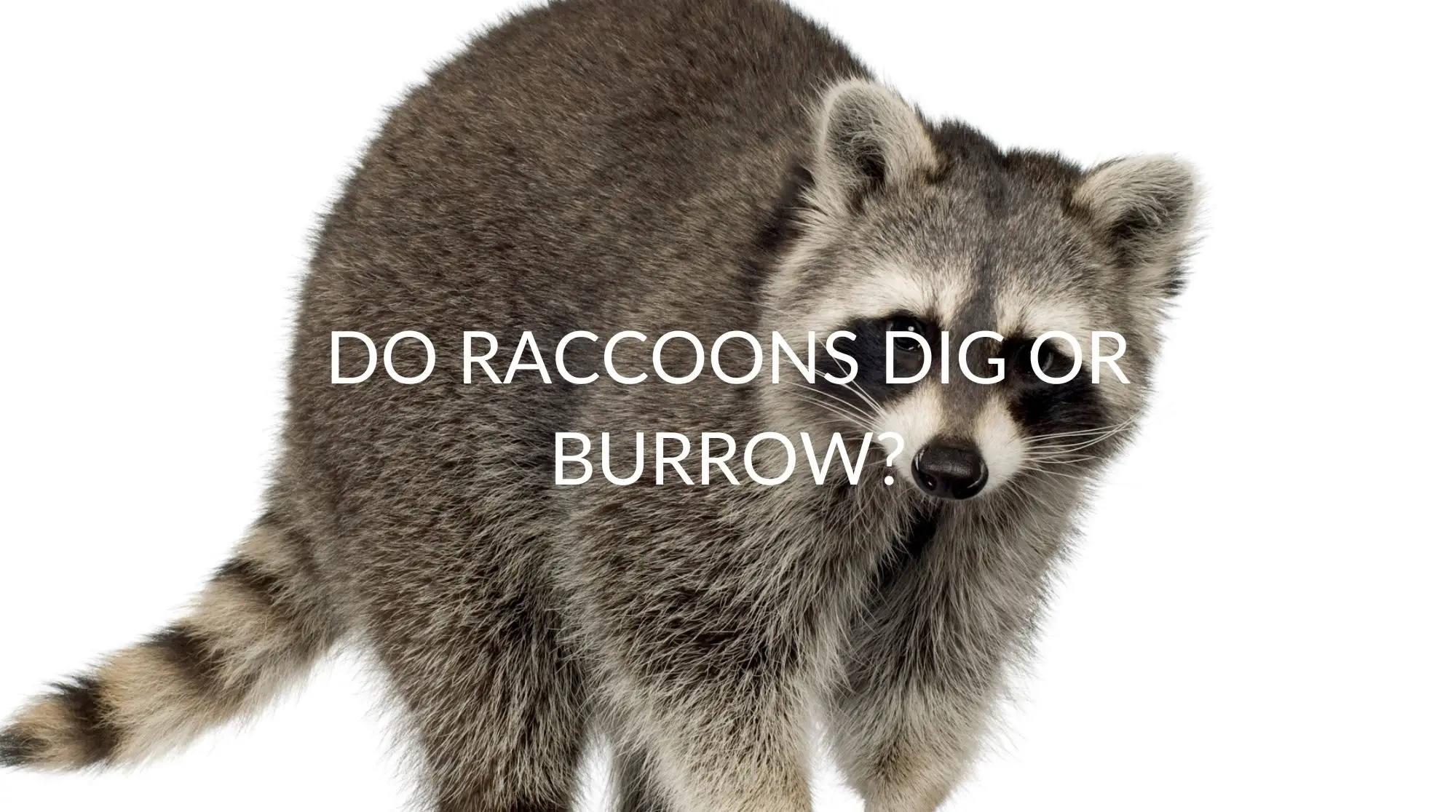If you’ve noticed holes or a burrow in your garden, then you may be wondering what’s causing it. In this article, not only will you find out how likely it is that a raccoon is digging in your garden, but you’ll also learn what to look for, why they do it, and how to stop them!
So keep reading to find out everything you need to know!
So, Do Raccoons Burrow?
It’s extremely unlikely that a raccoon is digging a burrow for yourself in your garden. Raccoons prefer to find burrows and dens that were created by other animals and abandoned rather than creating their own.
If a raccoon is having trouble finding a safe den, then it’s possible that it’ll end up trying to create a burrow, but this is still unlikely and only a temporary solution.
Do Raccoons Dig?
Yes, raccoons do dig. Raccoons will dig for food in your garden. They love grubs, and if they sense grubs in your garden, they’ll dig up a lot of your lawn to try and get to them. Another reason raccoons will dig is to get somewhere.
For example, if there’s a fence they can’t climb, then they’ll happily try to dig underneath instead.
Do Raccoons Live Underground?
Raccoons do live underground, but they rarely make their own burrows. If a raccoon is living underground, then it’s probably found a den created by another animal. Or perhaps, it’s living in a crawlspace or a basement, etc.

What Do Raccoon Holes Look Like?
Raccoon holes tend to be shallow and not very big. When they’re digging, they’re not digging for shelter but for grubs that are just under the surface of the grass. The holes will also be messy. They don’t mind bringing attention to the holes because they won’t plan on staying in that location long-term.
For reference, raccoon holes look similar to skunk holes, so if you notice these, it could be raccoons you’re dealing with.
How To Prevent Raccoons From Digging?
If you think raccoons are digging up your lawn, then here are the best ways to get rid of them and make sure they don’t come back!
Use Grub Killer
First of all, you should treat your lawn for grubs. Using a grub killer to remove grubs is a great way to deter raccoons from digging them up. After all, if there’s no food, there’s no point doing it.
If you’re not sure what grub killer to use, Lawnbox Grubout is a great choice. It’s going to last all season, and it’s also 100% organic!
Keep Your Trash Sealed
The first thing to do is make sure your trash is well-sealed. Raccoons enjoy searching through the trash for meals. Making sure they can’t get your trash will therefore make your home far less enticing to them.
Block Off Entry To Your Home
Additionally, you should also make sure that entrances to your property are blocked off too. It’s shocking all the different ways raccoons can enter your home. So you must consider less visible entrances, such as your chimney or cat flap, in addition to addressing any more obvious points of entry.
Remove Pet Food
Make sure that you take away pet food from your pets once they have finished eating. Unfortunately, leaving pet food out all day will also draw raccoons to your house.
Shine Bright Lights At The Raccoon
If you spot raccoons in your backyard or home, when you notice them, shine a bright light on them. This is going to scare them away instantly, and if you do it enough times, they’ll begin to feel like that area is unsafe.
Make Sure Trees And Hedges Are Trimmed
You should also make sure that trees and hedges around your house are trimmed as well. This is especially true when any of these things are touching your house. A lot of the time, trees can give raccoons access to your roof or other areas of the home they can enter.
Try Scare Tactics
Things that make noise can be used to scare raccoons away as well. Wind chimes could make a raccoon jump when the wind blows, or leaving a radio on can make it seem to the raccoon that there are people in the vicinity.
Motion Activation Systems
Motion-activated sprinklers and lights can also scare raccoons, so the next time they enter your property, they might be enough to scare them away!
Improve Your Fence
If you don’t have a fence, then you should think, first of all, install one to make it harder for raccoons to enter your premises. However, if you already have a fence, make sure that it also goes deep underground as well.
Not only are raccoons good at climbing, but they’re also good at digging, so you need to make sure you’re cutting off both ways in.
Predator Urine
And lastly, predator urine can be an effective way to get rid of raccoons as well. Bobcats, cougars, and even domestic dogs are all predators to raccoons, so purchasing some predator urine is a great way to deter them!
FAQ
Here are some more frequently asked questions people have about raccoons digging in their gardens!
Do Raccoons Dig Up Lawns?
Raccoons will dig up lawns in search of food or get somewhere. However, their holes tend to be small and messy, not massive.
Do Raccoons Dig Under Houses?
Raccoons will dig under a house if they see a gap or hole that they only need to widen. However, if they don’t think there’s any access to the crawlspace in your home, it’s unlikely they’ll dig to get to it.
Do Raccoons Dig For Grubs?
Raccoons love grubs, so they’ll gladly dig to try and get to them. So, yes, they’ll gladly dig in an attempt to get any grubs they can.
Do Raccoons Dig Up Plants?
If you have vegetables or tasty plants in your garden, then raccoons will dig to get to them. Normally they’ll pull them out with their front paws, or if they’re buried well, they’ll begin to dig.
Do Raccoons Dig Tunnels
Raccoons will dig tunnels in order to get somewhere. While they are excellent climbers, sometimes, they’ll need to dig instead.
Do Raccoons Dig Up Dead Animals?
It’s entirely possible for raccoons to dig up dead animals. Especially if they’ve died recently and they’re easy to get to. So make sure you’re burying any animals well.
Recap
As you can see, while raccoons can dig and burrow, it’s unlikely that they’re going to dig to create a den for themselves. Instead, it’s much more likely that they’ll dig to search for food or to get somewhere.
However, with the right prevention techniques, you can make your garden very unappealing to raccoons.
If you liked this article, make sure you check out the rest of the website! Otherwise, have a great day!

